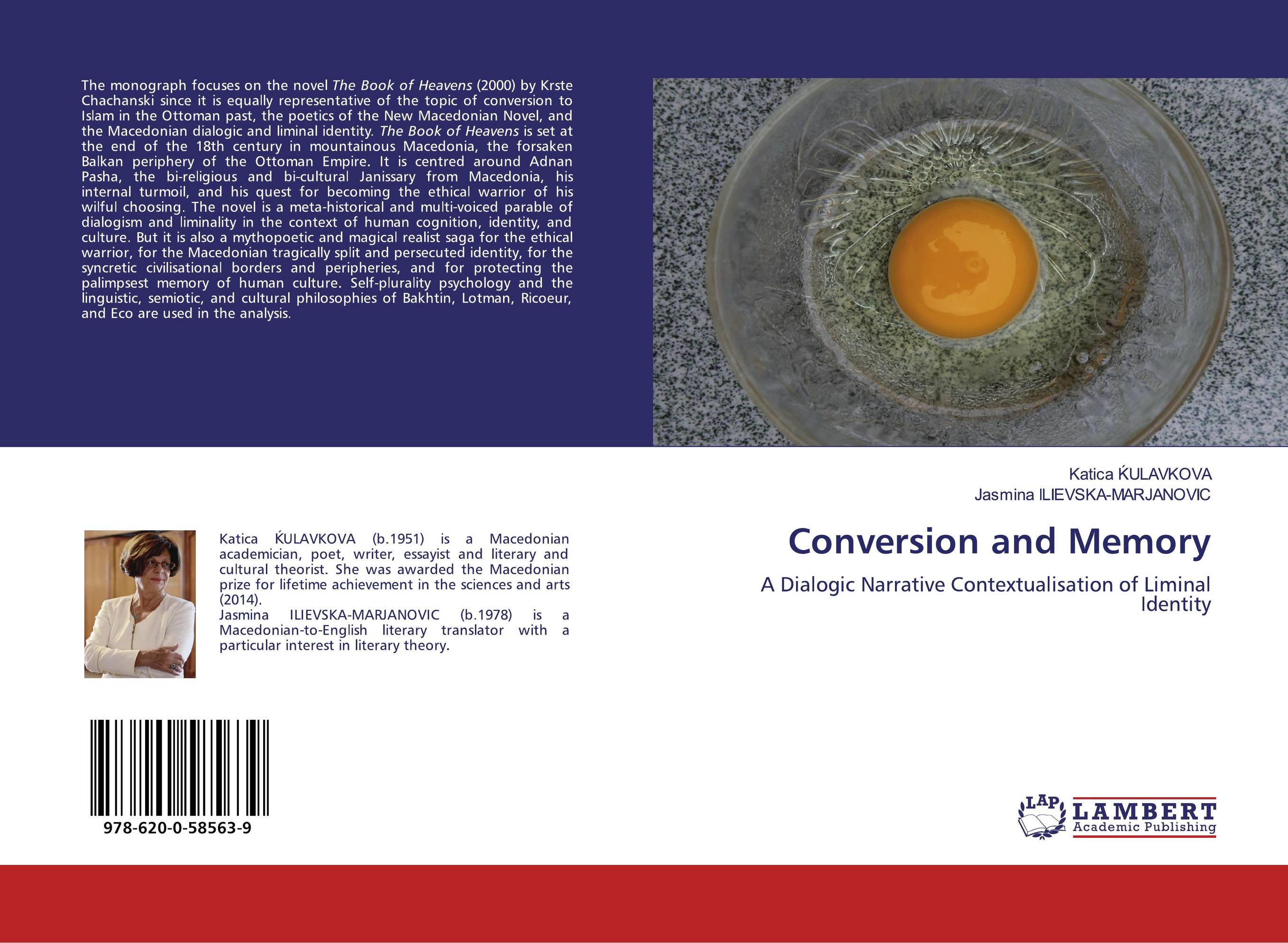| Поиск по каталогу |
|
(строгое соответствие)
|
- Профессиональная
- Научно-популярная
- Художественная
- Публицистика
- Детская
- Искусство
- Хобби, семья, дом
- Спорт
- Путеводители
- Блокноты, тетради, открытки
Conversion and Memory. A Dialogic Narrative Contextualisation of Liminal Identity

В наличии
| Местонахождение: Алматы | Состояние экземпляра: новый |

Бумажная
версия
версия
Автор: Katica ?ULAVKOVA and Jasmina ILIEVSKA-MARJANOVIC
ISBN: 9786200585639
Год издания: 2020
Формат книги: 60×90/16 (145×215 мм)
Количество страниц: 68
Издательство: LAP LAMBERT Academic Publishing
Цена: 23493 тг
Положить в корзину
Позиции в рубрикаторе
Отрасли знаний:Код товара: 568065
| Способы доставки в город Алматы * комплектация (срок до отгрузки) не более 2 рабочих дней |
| Самовывоз из города Алматы (пункты самовывоза партнёра CDEK) |
| Курьерская доставка CDEK из города Москва |
| Доставка Почтой России из города Москва |
Аннотация: The monograph focuses on the novel The Book of Heavens (2000) by Krste Chachanski since it is equally representative of the topic of conversion to Islam in the Ottoman past, the poetics of the New Macedonian Novel, and the Macedonian dialogic and liminal identity. The Book of Heavens is set at the end of the 18th century in mountainous Macedonia, the forsaken Balkan periphery of the Ottoman Empire. It is centred around Adnan Pasha, the bi-religious and bi-cultural Janissary from Macedonia, his internal turmoil, and his quest for becoming the ethical warrior of his wilful choosing. The novel is a meta-historical and multi-voiced parable of dialogism and liminality in the context of human cognition, identity, and culture. But it is also a mythopoetic and magical realist saga for the ethical warrior, for the Macedonian tragically split and persecuted identity, for the syncretic civilisational borders and peripheries, and for protecting the palimpsest memory of human culture. Self-plurality psychology and the linguistic, semiotic, and cultural philosophies of Bakhtin, Lotman, Ricoeur, and Eco are used in the analysis.
Ключевые слова: Dialogism and Self-plurality, Macedonian identity and cultural memory, Ottomanisation and Janissaries, Macedonian New Novel, The Book of Heavens by Krste Chachanski, Mikhail Bakhtin, Juri Lotman, Paul Ricoeur, liminal identity, Katica Kulavkova, Jasmina Ilievska-Marjanovic



